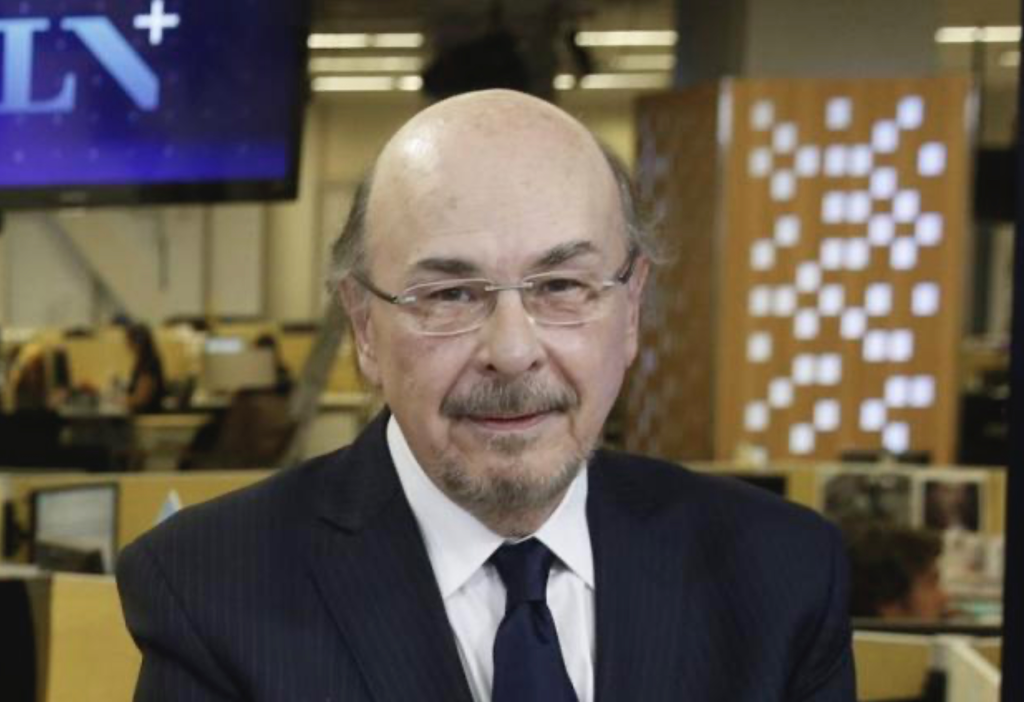RICARDO KIRSCHBAUM
THE ANGER FOR THE PRESENT WON OVER FEAR

Fear of the present was much greater than fear of the future. The explanation for the massive vote in favor of Javier Milei is to be found there: the weariness of the majority of society with the daily reality and with the strong desire for change. A resounding vote against the government that embodied the popular annoyance. This mood spread throughout all the provinces and especially in Buenos Aires, which was the main card played by the Minister of Economy to match the advantages that Milei would obtain in Córdoba, Mendoza, Corrientes, Santa Fe and the Capital. The small difference in the province was a huge surprise. The other surprise was in the north of the country, except in Santiago and Formosa, where Milei also won. The result was built, in addition, with a higher turnout in the voting and with the control, another point in which the PRO’s help was fundamental.
The magnitude of the victory was sustained by the clear slippage of the Peronist vote towards the libertarian one. Otherwise, it is impossible to find an accurate explanation for the figures achieved by Milei in places that had long been proven to be strongholds of the ruling party. This was achieved despite the indiscriminate use of state resources and funds in Massa’s campaign. The same phenomenon crossed the radicalism: its affiliates and followers disregarded the “neutrality” decided by the leadership of the UCR to support La Libertad Avanza.
Political parties have long since lost their centrality and specific weight. Party discipline is an antique and is no longer relevant.
The new president -as he acknowledged in his speech- owes his election to the fact that the recomposition of the opposition, divided as it was between La Libertad Avanza and Juntos por el Cambio, was the key to achieve a victory by more than 11 points. Macri and Bullrich’s agreement with MIlei, when the libertarian was still stunned by Massa’s pole position in the first round, was almost a checkmate move. The volume of votes received from that quarry was decisive in the runoff.
A regional constant was also verified here: the ruling parties have lost almost every election. And as Argentina does not deprive itself of anything, now this unprecedented experience is being inaugurated: placing in the Casa Rosada a leader with no political experience, with ultra-liberal recipes, who now has the task of putting together his government team and building a policy in a fragmented and very fragmented political and legislative scenario. Will the electoral coalition that put him in the Casa Rosada become a government coalition or will they be loose leaders? Macri, as will be remembered, resisted this idea although he later blamed his radical allies for not having been able to advance in the reforms.
For the time being, Milei will have a wide field of action and it will be necessary to see if he has the political will to turn the tumult that is his sector into a political current that, within the rules of democracy and the system, can operate in a critical situation such as the one inherited by the new government.
An agreement in Congress between the PRO and Milei is expected, while the radical legislators, for the time being, have generically expressed their will to be “opponents”. It will be necessary to measure the impact of the ballot result on that previous position.
The central question is whether yesterday’s comfortable result opens a new political era in Argentina. The popular vote, it has already been said, has been against the government of Alberto Fernández, Cristina Kirchner and Sergio Massa, who constituted the legs of an agreement that allowed them to win by several points the 2019 election.
The president-elect, in his read speech, has made a generic call to pave the way for those he needs to incorporate in order to be able to govern. Some trade unionists, such as the incombustible Armando Cavalieri, have already signed up for support. Like Barrionuevo, the trade union leader has an armored pragmatism.
Milei’s intention to hand over the management of social plans to some union leaders seems to be maintained.
What will happen in Peronism? When Massa triumphed in the first round, he appeared alone on stage to give his speech. Yesterday, in the defeat, the candidate was accompanied by the main currents of Peronism, including Máximo Kirchner, Kicillof and Héctor Daer, one of the heads of the CGT. The message is clear: they all lost. Cristina’s absence has been a classic of this campaign and she did not show her face in the defeat as if she were not involved in this electoral debacle. Because the mother of the child, the one who invented the formula with Fernández, the one who fulminated Wado de Pedro as candidate and blessed the minister, was the Vice-President. So, Cristina was also tacitly on the stand, even if she has distanced herself.
Massa has warned of the risks of being definitively left without any power. He will define whether he will remain in the Economy until December 10, as he should, after the meeting that Milei will have with Fernández in Olivos. The President-elect has already warned that there is no room for gradualism due to the sensitivity of the crisis. And Massa would not want to take charge of decisions that Milei would demand before taking office. The frustrated candidate of the ruling party is also trying to avoid being more bruised. His goal is to try to regroup forces in Peronism, where there is a phenomenal passing of bills.
The few indications that Milei gave in his speech about the measures to be taken have been to announce that reforms will be implemented in the State to reduce expenses and attack the deficit. For the libertarian, they are all political expenses that must be reduced.
The new government, even with the wide electoral support obtained in the ballot, has little time because it is running against impatience. This countdown has practically started when the election was over.
The grace period of a new administration is running out very quickly. And progress on budget cuts will arouse resistance.
In his speech last night, Milei guarded against such resistance and future inevitable challenges by quoting Juan Domingo Perón: “Within the law, everything; outside the law, nothing”.
Memories of the future.
Ricardo Kirschbaum is the general editor of Clarín.
This article was originally published in Clarín, Argentina, and is reprinted here with permission.



